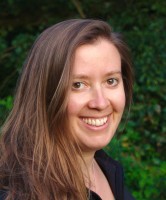Climate & Environment
Climate Change
Terrestrial Biodiversity
Carbon Cycle
Trees, Forests & Deforestation
Climate Adaptation & Resilience
Agriculture, Crops & Soil Health
Post-Doctoral Fellowships
Denmark
2018.06.30
Managing Africa’s carbon budget : assessing the impact of climate change and deforestation
Woody vegetation plays a key role in maintaining the ecological balance of our planet. Among other things, it has the capacity to soak up carbon dioxide from the atmosphere and plays a crucial role in sustaining the global carbon budget. In Africa, the combined impact of climate change and deforestation on savannahs and rainforests is threatening the continent’s aboveground carbon stock. This phenomenon is likely to lead to an elevated amount of atmospheric CO2, which may exaggerate climate change effects, potentially leading to a vicious cycle of increased extreme weather events. To improve our understanding of this alarming phenomenon, Dr. Martin Brandt, of the University of Copenhagen, in Denmark, is using state-of-the-art satellite technologies to closely monitor carbon stock dynamics at the regional and continental scale, with a special focus on non-forested biomes such as savannahs. His overarching objective is to contribute to a better understanding of climate change risks and to a sustainable management of carbon as a natural resource.
«The African continent is facing one of the driest periods in the past decades, Dr. Brandt reports. If climate change increases the frequency of droughts and natural hazards, there is a risk of increased tree and shrub mortality and that long-term carbon sinks turn into a carbon source. What is more, if demographic changes give rise to large-scale deforestation, we expect considerable carbon losses. Current projects to assess carbon sinks tend to focus solely on forests, the postdoctoral researcher points out. This is because the scattered trees and shrubs of savannah ecosystems are very different to closed forests and challenging to assess with optical satellite data. The problem is that carbon stocks in savannahs have recently been shown to be underestimated."
Mapping the continent’s aboveground carbon stock: Not omitting savannahs
«Knowledge of the amount, distribution, and turnover of carbon in savannahs and rainforests is crucial for understanding the effects of climate change, but the lack of operational systems hinders the monitoring of carbon-stock dynamics,» he continues. Aiming to fill this gap, Dr. Martin Brand combines the use of two earth observation satellite technologies: very high spatial resolution satellite images and a new special technique called Vegetation Optical Depth (VOD), derived from low frequency passive microwave-based satellite systems. «The first method allows a spatial resolution below 1 meter. This way, we can check each single tree at large scales, to assess the carbon mass of each individual. The second has never been used in this context before, but shows very promising results. It has a 25-km resolution, but it doesn’t just take a photo, it can sense deeper within the canopy, capture the layers, without being sensitive to atmospheric and cloud effects.» This will be the first project applying above mentioned data sources for assessing carbon stock dynamics at large scales. Until now, such studies were local scale or limited to forests. The present approach will allow for unprecedented accuracy of estimating woody carbon. The data obtained will be compared to existing maps and ecosystem models, and confronted to climate data, to assess the impact of climatic extremes on carbon stocks.
The objective of this research project is in alignment with the Paris 2015 climate agreement, meeting its requirements on timely and repeated carbon counting. « The shortcomings of optical and active radar satellite products and the lack of systematic field inventories have led to considerable uncertainty of the overall pattern of the carbon stocks of the African continent, and how they change with time », Dr. Martin Brandt points out. "The tool offered by this project will allow countries to report their annual carbon budget at different scales and attribute changes to droughts and deforestation."
«The African continent is facing one of the driest periods in the past decades, Dr. Brandt reports. If climate change increases the frequency of droughts and natural hazards, there is a risk of increased tree and shrub mortality and that long-term carbon sinks turn into a carbon source. What is more, if demographic changes give rise to large-scale deforestation, we expect considerable carbon losses. Current projects to assess carbon sinks tend to focus solely on forests, the postdoctoral researcher points out. This is because the scattered trees and shrubs of savannah ecosystems are very different to closed forests and challenging to assess with optical satellite data. The problem is that carbon stocks in savannahs have recently been shown to be underestimated."
Mapping the continent’s aboveground carbon stock: Not omitting savannahs
«Knowledge of the amount, distribution, and turnover of carbon in savannahs and rainforests is crucial for understanding the effects of climate change, but the lack of operational systems hinders the monitoring of carbon-stock dynamics,» he continues. Aiming to fill this gap, Dr. Martin Brand combines the use of two earth observation satellite technologies: very high spatial resolution satellite images and a new special technique called Vegetation Optical Depth (VOD), derived from low frequency passive microwave-based satellite systems. «The first method allows a spatial resolution below 1 meter. This way, we can check each single tree at large scales, to assess the carbon mass of each individual. The second has never been used in this context before, but shows very promising results. It has a 25-km resolution, but it doesn’t just take a photo, it can sense deeper within the canopy, capture the layers, without being sensitive to atmospheric and cloud effects.» This will be the first project applying above mentioned data sources for assessing carbon stock dynamics at large scales. Until now, such studies were local scale or limited to forests. The present approach will allow for unprecedented accuracy of estimating woody carbon. The data obtained will be compared to existing maps and ecosystem models, and confronted to climate data, to assess the impact of climatic extremes on carbon stocks.
The objective of this research project is in alignment with the Paris 2015 climate agreement, meeting its requirements on timely and repeated carbon counting. « The shortcomings of optical and active radar satellite products and the lack of systematic field inventories have led to considerable uncertainty of the overall pattern of the carbon stocks of the African continent, and how they change with time », Dr. Martin Brandt points out. "The tool offered by this project will allow countries to report their annual carbon budget at different scales and attribute changes to droughts and deforestation."

Martin
BRANDT
Institution
University of Copenhagen
Country
Denmark
Nationality
German
Related articles
Climate & Environment
Climate Change
Finance, Investment & Risk Management
Societal Challenges
Climate Adaptation & Resilience
Insurance & Risk Management
Environmental Justice
Civil Society & Governance
AXA Project
Italy
AXA Research Lab on Climate Change, Risk and Justice
In response to three research questions: How can the private and financial sectors contribute to a just transition to a... Read more

Gianfranco
PELLEGRINO


